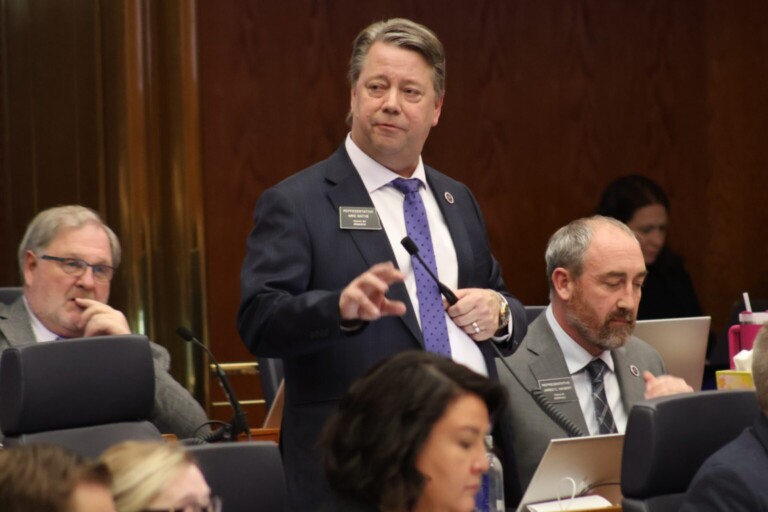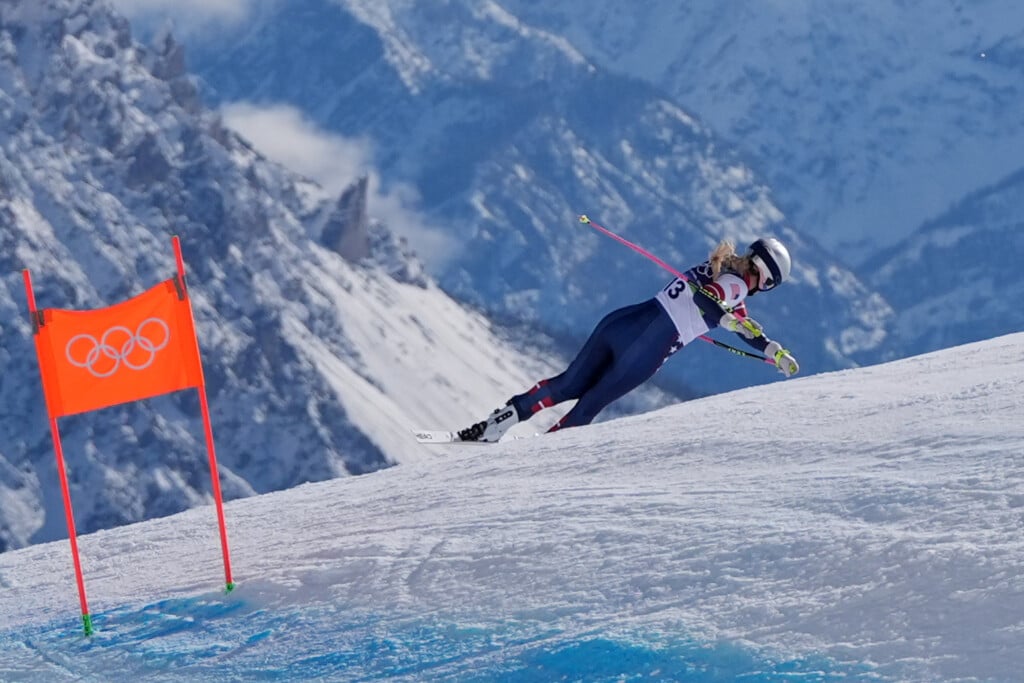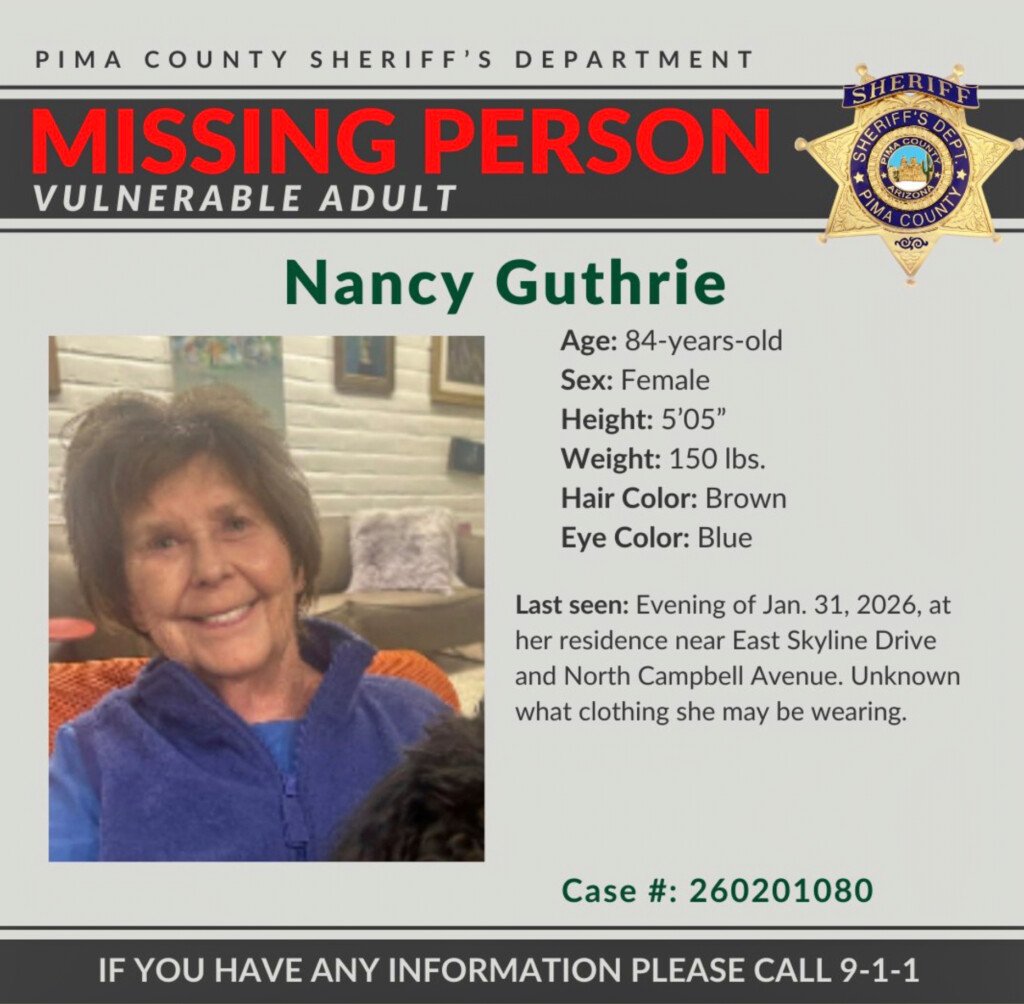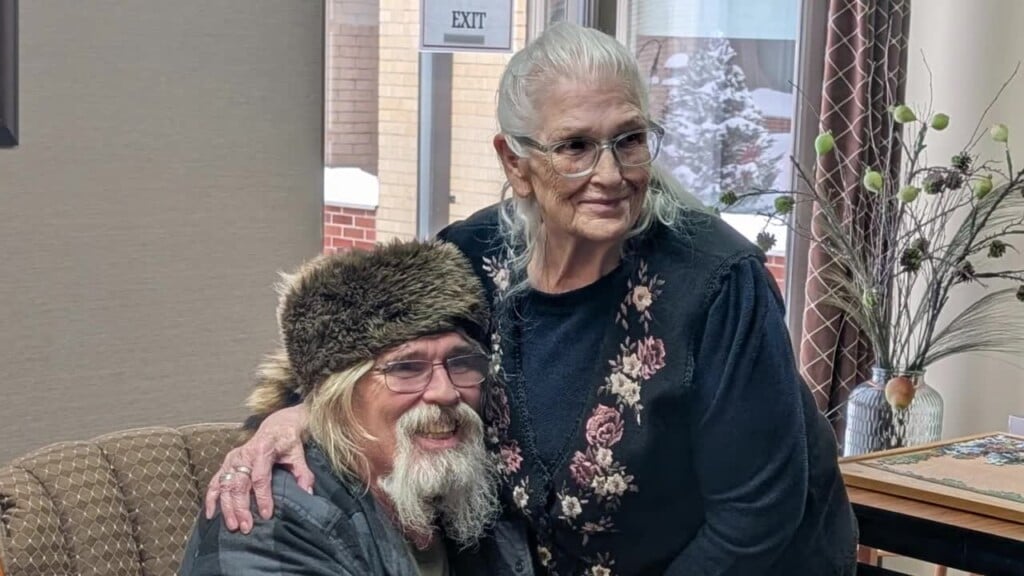House rejects bills that aimed to change how North Dakota candidates get on the ballot

BISMARCK, N.D. (North Dakota Monitor) — Two bills that would have reshaped how candidates get on the North Dakota ballot failed in the House late Tuesday.
House Bill 1446, sponsored by Rep. Mike Nathe, R-Bismarck, would have eliminated the option of getting on the ballot through a political endorsement. Instead, candidates for statewide and legislative offices would be required to gather signatures to get on the primary or general election ballot.
Currently, candidates can get on the ballot through either a political endorsement or by gathering signatures. However, several incumbent lawmakers skipped district endorsing conventions last year, citing concerns about the process. And two candidates endorsed at the Republican Party state convention went on to lose in the primary.
“The system, we all know, is not working,” Nathe said.
Under the proposal, legislative candidates would be required to obtain signatures for 1% of the district’s total population, about 167, while statewide office holders would need to acquire 2,000 signatures.
During floor debate, Nathe said some districts are pushing candidates away if they don’t meet the “litmus test” for the perceived values of the political party. Others are being harassed and booed at meetings if they say anything that could go against party doctrine, he said.
Lawmakers opposing the bill suggested it would put more candidates on the primary ballot and would fundamentally change the endorsing process.
Rep. Vicky Steiner, R-Dickinson, acknowledged that some districts have issues, but said it’s up to the state party to correct the behavior. She said some districts take their endorsements and processes seriously and are consistently trying to improve them.
“The system works,” Steiner said. “Endorsing a candidate gives the voter a chance to understand that that person has been vetted by a group of people who have a set of principles.”
Rep. Ben Koppelman, R-West Fargo, said there would be no way to verify that the signatures submitted by a candidate are from people of the same party.
“Many court cases have suggested that a party, through law, cannot be deprived of the ability to choose their candidate,” Koppelman said.
Nathe’s bill failed on a 58-32 vote.
House Bill 1424, sponsored by Koppelman, would have required candidates to obtain a political party’s endorsement. Candidates who submit signatures to get on the ballot could not have a political party next to their name.
After the debate on Nathe’s bill, Koppelman urged lawmakers to vote against his proposal.
“I think that we all are reacting to what our experiences are in the last two, maybe four years,” he said. “I think if cooler heads prevail, and we go back and try to build the best districts that we can, that we’ll be successful in our respective parties and hopefully we’ll get more people involved.”
Koppelman’s bill failed on an 86-3 vote.
House Minority Leader Zac Ista, D-Grand Forks, said people listening to the floor debate may get the wrong impression that getting into politics is “messy” and “nasty.”
“I can’t speak for your districts or party, maybe that’s true, but I want people watching to know that that’s not the case in the minority party,” Ista said. “I sure hope you all will figure this out so we can move forward productively.”
Senate Bill 2252, sponsored by Sen. Chuck Walen, R-New Town, also would have prohibited ballot access to the primary election for candidates not endorsed by a political party. Walen’s bill failed on the Senate floor Monday on a 41-6 vote.
(Story written by Michael Achterling – North Dakota Monitor)






